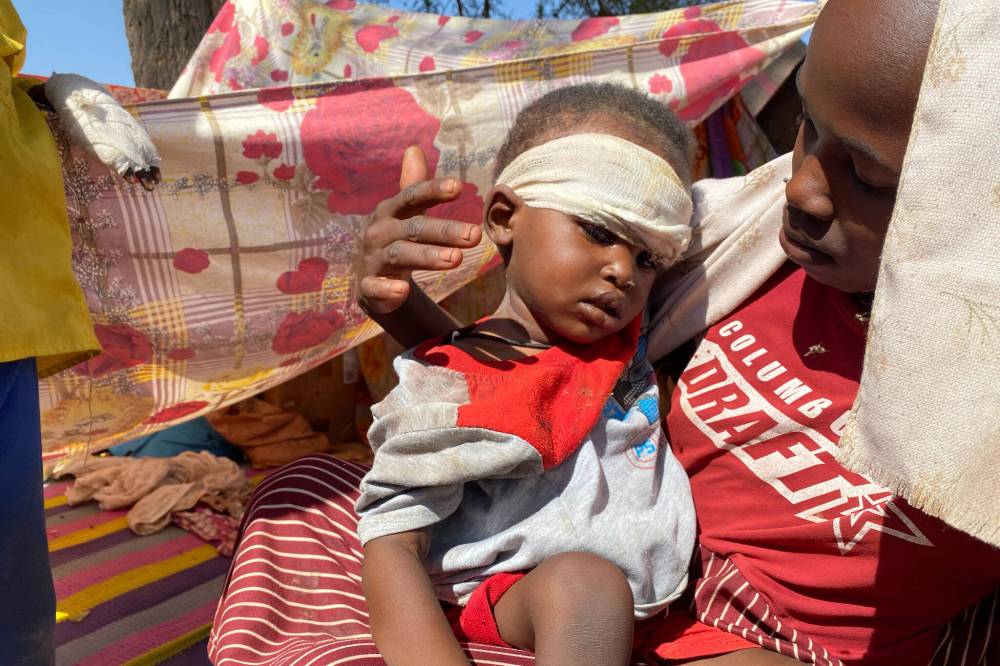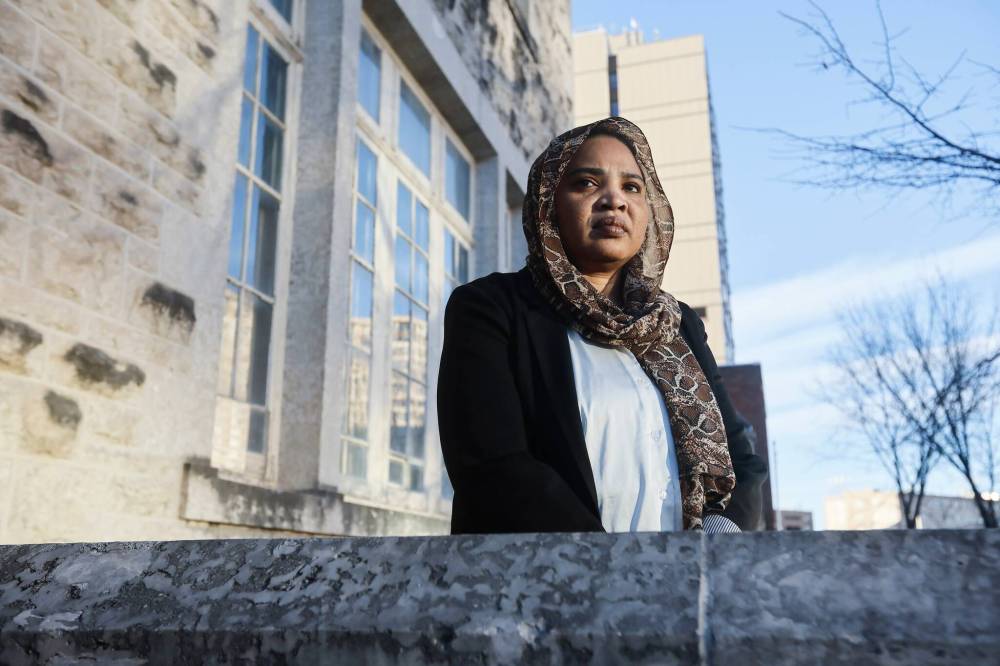Winnipeg woman who fled Darfur in 2007 fears for relatives, friends amid famine, bloodshed in hometown
Advertisement
Read this article for free:
or
Already have an account? Log in here »
To continue reading, please subscribe:
Monthly Digital Subscription
$0 for the first 4 weeks*
- Enjoy unlimited reading on winnipegfreepress.com
- Read the E-Edition, our digital replica newspaper
- Access News Break, our award-winning app
- Play interactive puzzles
*No charge for 4 weeks then price increases to the regular rate of $19.95 plus GST every four weeks. Offer available to new and qualified returning subscribers only. Cancel any time.
Monthly Digital Subscription
$4.99/week*
- Enjoy unlimited reading on winnipegfreepress.com
- Read the E-Edition, our digital replica newspaper
- Access News Break, our award-winning app
- Play interactive puzzles
*Billed as $19.95 plus GST every four weeks. Cancel any time.
To continue reading, please subscribe:
Add Free Press access to your Brandon Sun subscription for only an additional
$1 for the first 4 weeks*
*Your next subscription payment will increase by $1.00 and you will be charged $16.99 plus GST for four weeks. After four weeks, your payment will increase to $23.99 plus GST every four weeks.
Read unlimited articles for free today:
or
Already have an account? Log in here »
After seeing satellite images of her home in war-torn Sudan, Amira Ibrahim was unable to eat for two days.
El-Fasher, the state capital of North Darfur and Ibrahim’s hometown, was seized by paramilitary group Rapid Support Forces last week as the country’s civil war continues to rage.
Ibrahim was born in el-Fasher and lived there for 20 years before moving to Winnipeg in 2007, having endured four years of civil war. In 2021, the most recent Statistics Canada census, Canada had welcomed a total of 11,385 Sudanese refugees, 890 of whom were in Manitoba.
Amira Ibrahim has family who refuse to leave war-torn Sudan. She is calling on the Canadian government to stop doing business with the United Arab Emirates who have been accused of supplying weapons to Sudan‘s paramilitary forces.Some of her family members have refused to leave out of pride for their home. Her 68-year-old cousin was one of them.
“He said he was not going to leave el-Fasher. They come, and he’s already sick, and they kill him in his bed,” said Ibrahim.
“Nobody knew he was dead in bed until four days after… some people said, ‘let’s check on people who are there,’ and they found him dead, and blood everywhere.”
She said three other cousins have been killed in attacks.
“One of my cousins, he was hung on the trees, and (they) left him like that,” she said.
Ibrahim said she learned about the hanging of her 24-year-old cousin through a video sent in a WhatsApp group chat where she had connections with people in el-Fasher.
The Rapid Support Forces have attacked the area for more than a year, cutting off food supplies and creating a famine.
El-Fasher was one of the last strongholds for the Sudanese military, and it’s capture marks a dire turning point in the ongoing war.

The civil war started in 2023 when the RSF and the Sudanese military initially agreed to share power, but the deal fell apart amid disputes over the transition to a civilian government.
It’s estimated 40,000 people have died since the conflict started, the United Nations says, but aid groups say that number could be many times higher.
The UN says Sudan is facing the largest hunger crisis in recent history. Specific numbers are hard to verify, due to a communications blackout.
The blackout has also caused Ibrahim to lose contact with everyone in el-Fasher; she had been communicating with people there who had internet via satellite.
The risk for her contacts was enormous. She says people in el-Fasher aren’t allowed to have phones and are killed if they’re found in possession of one.
She said because of this, there’s not enough awareness about the war.
“This is horrific, this is the forgotten war.”
“This is horrific, this is the forgotten war,” said Ibrahim, who recently organized a protest at the Manitoba legislature, where she says roughly 150 people attended.
“We want people to talk about Sudan, and el-Fasher. There are women they are killing, and kids they are still killing, based on their colour and ethnicity.”
She also criticized the United Arab Emirates, who have been accused of supplying weapons to the RSF. Her contacts in el-Fasher say they’ve seen UAE markings on weapons. She’s called on the Canadian government to stop doing business with the Middle Eastern country.
While the situation is dire, Ibrahim says there’s still hope.
“I’ve never seen Sudanese people as united as today,” she said, noting communities across Canada and the U.S. joining together in protest.
fpcity@freepress.mb.ca










